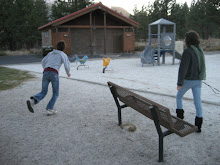Virtualization: Using VirtualBox to run a different OS
Sun's xVM VirtualBox product is pretty sweet. Imagine being able to test out any operating system from any operating system without causing any problems to your host operating system. All this is possible from Sun's VirtualBox, and more.
I found VirtualBox when first trying to migrate over to Linux. I have always had my issues with Windows, but I didn't want to wipe a computer and install Linux, or do anything strange with my startup and forge a dualboot system. After using VirtualBox for a little while to preview Ubuntu, I was convinced. Linux was and IS the operating system for me, in so many ways. In my own opinion, as a user of Windows for 19 years, Linux and its philosophy of free software is far superior to a system of ownership of ideas, proprietary software, and inflexibility.
I have noticed nothing but flexibility since moving to Linux, but that's not what this post is about.
There are some things that I learned with VirtualBox that are important to take note of. Make sure that the hard disk you create for your virtual OS is more than big enough. A dynamically expanding hard drive that VirtualBox creates will expand... but only up to the size that you specify. I thought that 'dynamically expanding hard drive' meant that it would grow to fit whatever content that is on it, but that's not the case.
I learned that the hard way after a whole day of downloading stuff over a 20 kbps connection. I filled up my hard drive in no time flat and I had nowhere to go, so here's attempt 2.
Another thing that you need to do immediately is use the Guest Additions. Installing the Guest Additions will make your life so much easier. Afterward, you'll be able to scale the guest OS up as far as your host will allow, rather than just keeping it at the default 800x600, which is really annoying to say the least. Guest Additions also remove the mouse grabbing nature of a virtual OS by default. After installing, you should be able to move your mouse seamlessly between host and guest, which is nice.
Afraid of using a new OS? Install VirtualBox and run it, without any damage to your host. If you can imagine this, you can create disposable operating systems that you can throw out at any time without any side effects.
I found VirtualBox when first trying to migrate over to Linux. I have always had my issues with Windows, but I didn't want to wipe a computer and install Linux, or do anything strange with my startup and forge a dualboot system. After using VirtualBox for a little while to preview Ubuntu, I was convinced. Linux was and IS the operating system for me, in so many ways. In my own opinion, as a user of Windows for 19 years, Linux and its philosophy of free software is far superior to a system of ownership of ideas, proprietary software, and inflexibility.
I have noticed nothing but flexibility since moving to Linux, but that's not what this post is about.
There are some things that I learned with VirtualBox that are important to take note of. Make sure that the hard disk you create for your virtual OS is more than big enough. A dynamically expanding hard drive that VirtualBox creates will expand... but only up to the size that you specify. I thought that 'dynamically expanding hard drive' meant that it would grow to fit whatever content that is on it, but that's not the case.
I learned that the hard way after a whole day of downloading stuff over a 20 kbps connection. I filled up my hard drive in no time flat and I had nowhere to go, so here's attempt 2.
Another thing that you need to do immediately is use the Guest Additions. Installing the Guest Additions will make your life so much easier. Afterward, you'll be able to scale the guest OS up as far as your host will allow, rather than just keeping it at the default 800x600, which is really annoying to say the least. Guest Additions also remove the mouse grabbing nature of a virtual OS by default. After installing, you should be able to move your mouse seamlessly between host and guest, which is nice.
Afraid of using a new OS? Install VirtualBox and run it, without any damage to your host. If you can imagine this, you can create disposable operating systems that you can throw out at any time without any side effects.
Labels: linux, sun, ubuntu, virtualization

0 Comments:
Post a Comment
Subscribe to Post Comments [Atom]
<< Home